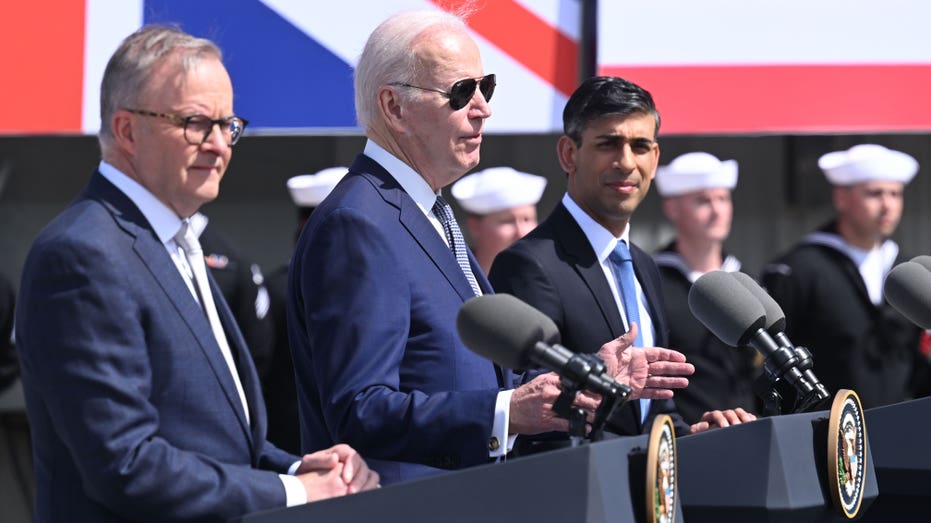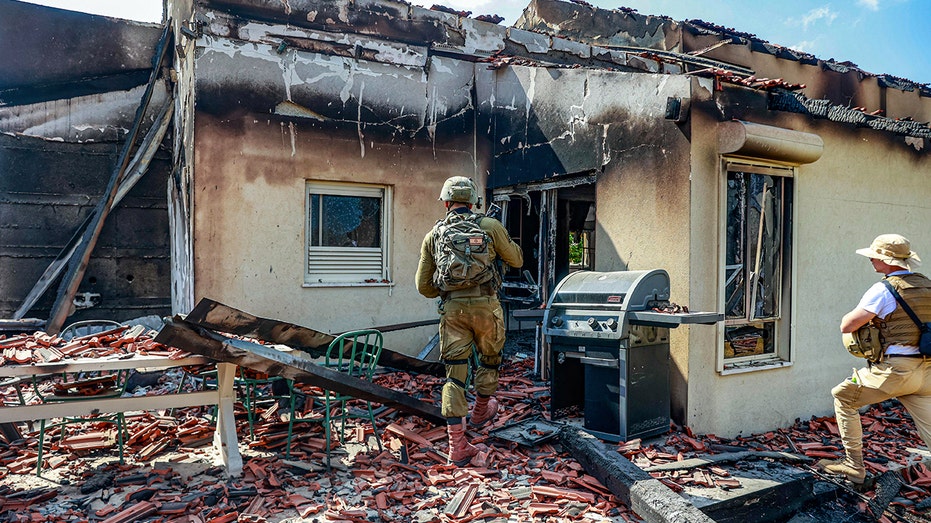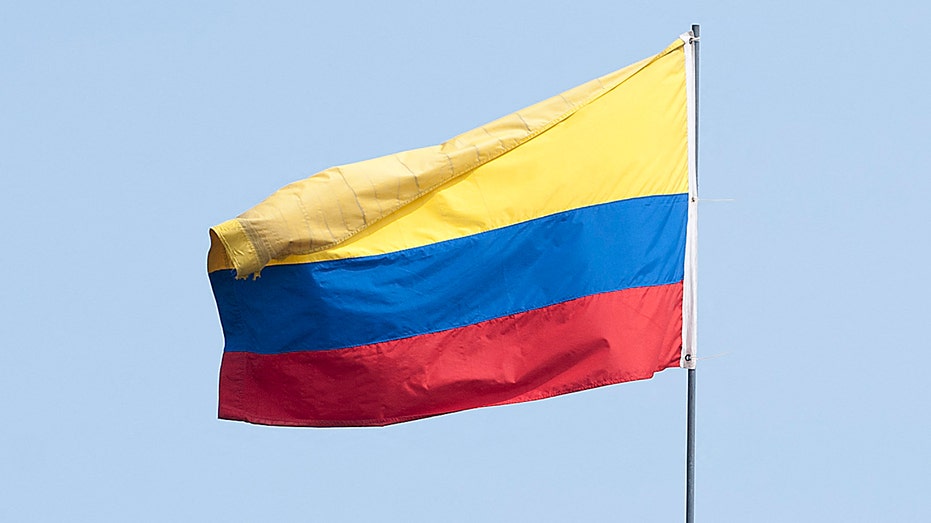British Secretary of State for Defense Grant Shapps has highlighted artificial intelligence (AI) as a key component to strengthening security alliances, such as the increasingly vital AUKUS alliance between the U.S., the U.K. and Australia.
“We’re both monitoring and working on these things very closely,” Shapps told Fox News Digital in a recent interview.
“Warfare has always changed and has always been the first to the punch. It’s always been who can develop the defensive or weaponry that’s going to best win the battle,” Shapps said. “It’s no different with AI.
“We’re starting to see how it’s being used, [and] the most important thing is to work on our alliances that make that stronger. There’s a fantastic alliance. It has cross-party support both at home and here in the U.S., called AUKUS, and it’s an alignment between the British, the Americans and our Australian friends.
CONTROVERSIAL TECH COMPANY QUIETLY DELETES BAN ON ‘MILITARY’ USE FROM TERMS OF SERVICE
“In that, we are doing work on things like AI. It’s called the pillar two of AUKUS. It’s a fantastic piece of work, and it will only strengthen our collective security. And it’s just an example of the way that global Britain is working with America, [and] Australia in this case.”
AUKUS, formed in September 2021, originally aimed to help Australia acquire nuclear submarines but quickly developed into a vital piece of security and foreign policy for the three countries involved. The alliance agreed in December 2023 to step up testing of maritime drone defense systems as a means of fighting back against Chinese naval expansion in the Indo-Pacific region.
The group revealed last week that it had also carried out a series of robotic vehicle tests in South Australia in the fall of 2023, experimenting with the movement and sensor capabilities of the robots during the Trusted Operation of Robotic Vehicles in a Contested Environment (TORVICE) to identify and resolve “vulnerabilities faced by autonomous systems in a congested electronic warfare environment.”
WHAT IS ARTIFICIAL INTELLIGENCE (AI)?
The aggressive direction AUKUS has pursued with unmanned weapons and vehicles indicates an increasingly vital role for AI in the security alliance. Pillar II of AUKUS, known as the AUKUS Advanced Capabilities Pillar, looks to develop and integrate leading-edge technologies and capabilities, according to the Pentagon.
The TORVICE tests, for example, allowed the group to see how its network of robotic ground vehicles fared when subjected to electro-optical and position, navigation and timing attacks, the U.K. Defense Ministry said in a statement released Feb. 5.
“Transitioning trusted robotic capabilities into the hands of our warfighters safely and ethically is a priority,” Dr. Peter Shoubridge, chief land and joint warfare and defense scientist for Australia, said. He stressed, as many do, the need to keep humans in the operational loop of any autonomous system, particularly in the case of defense and weaponry.
Dr. Kimberly Sablon of the U.S. Department of Defense’s Principal Director for Trusted Artificial Intelligence and Autonomy, argued that TORVICE “builds upon the work the AUKUS partners demonstrated” in previous trials, another sign of commitment to pursuing AI as a means of helping contain Chinese regional ambitions in defense of allies.
ARM CEO TAKES VICTORY LAP AS STOCK SOARS WHILE RALLYING BEHIND AI-FUELED DEMAND
The group in the summer of 2023 tested AI-controlled drone swarm capabilities that could detect and track military targets in a “real-time representative environment” to find the “operation advantages necessary to defeat current and future threats across the battlespace,” according to a press release from the U.K. Defense Ministry.
“We are committed to collaborating with partners to ensure that we achieve this while also promoting the responsible development and deployment of AI,” U.K. Deputy Chief of Defense Staff Lt. Gen. Rob Magowan said at the time.
China considers the AUKUS alliance a “wrong and dangerous path” for “geopolitical self-interest, completely ignoring the concerns of the international community,” according to PRC spokesperson Wang Wenbin.
China continues to push its territorial claims throughout the South China Sea. Chinese coast guards have clashed with fisherman in neighboring waters, trying to stake claims to shoals off the coast of the Philippines, for example, and leading to tense exchanges.




